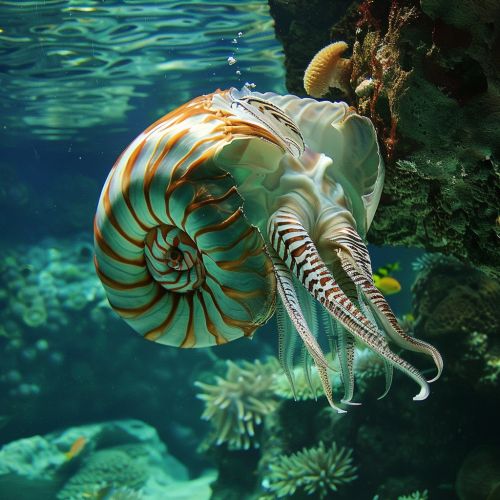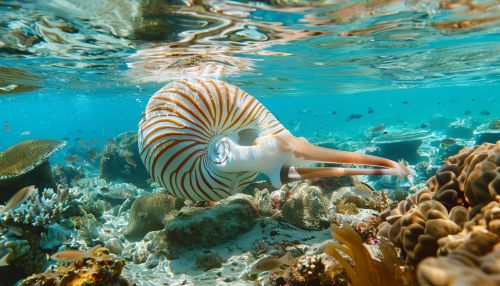Nautilus
Taxonomy and Evolution
The Nautilus is a marine creature that belongs to the family Nautilidae. It is the sole surviving family of the superfamily Nautilaceae, which is part of the larger order Nautilida. The Nautilus is a cephalopod, a group that also includes creatures such as squids, octopuses, and cuttlefish. However, unlike its more evolved counterparts, the Nautilus has retained many primitive characteristics, which have earned it the nickname of "living fossil".


Anatomy
The Nautilus is renowned for its distinctive shell, which is coiled, aragonitic, nacreous and pressure-resistant, providing the creature with buoyancy in the water. The shell is divided into chambers; the creature lives in the outermost chamber, while the other chambers are filled with gas and fluids. The Nautilus can control its buoyancy by regulating the gas and fluid within these chambers.
The Nautilus has around 90 tentacles, which are devoid of suckers, unlike other cephalopods. These tentacles are retractable and are used for sensing the environment and capturing prey. The Nautilus lacks the advanced vision of its cephalopod relatives; instead, it has a simple pinhole eye, which can only detect light and dark.
Behavior and Ecology
Nautiluses inhabit the deep slopes of coral reefs. They are known for their vertical migrations, which are thought to be driven by a search for food and the avoidance of predators. Nautiluses are scavengers, feeding on dead crustaceans, fish, and other organic matter.
The Nautilus has a slow growth rate and a long lifespan compared to other cephalopods. It is also known for its slow reproduction rate, with females laying a small number of large eggs.
Conservation
Due to their slow growth and reproduction rates, Nautiluses are vulnerable to overfishing. Their unique shells make them a target for souvenir and shell collectors, which has led to population declines in some areas. Conservation efforts are focused on establishing sustainable fishing practices and protecting their habitats.
